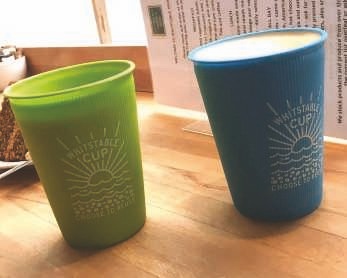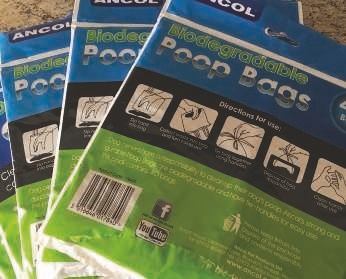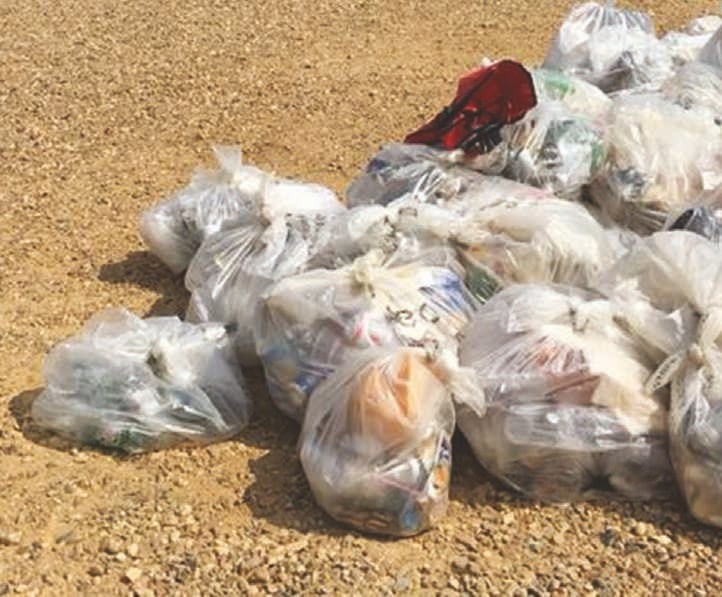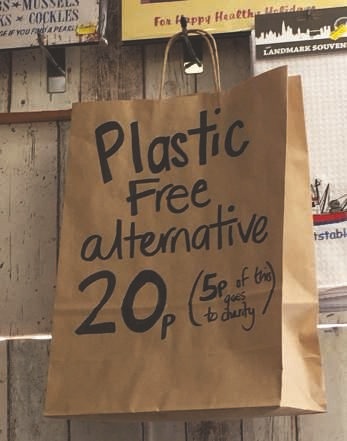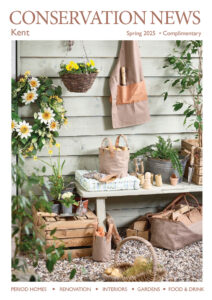Plastic Peril
One of life’s little pleasures of sitting in a coffee shop for half an hour – maybe for a sociable catch-up or for some recuperative 'me-time' was abruptly put paid to by Covid 19.
It became no longer possible to linger over a steaming china cup at a pleasant café table. Many coffee shops stayed in business – thank goodness – by serving take-away food and drink, but that has meant greater use of disposable cups and accessories, setting back the burgeoning plastic-free environmental movement.
The working group of Plastic Free Whitstable say things were going well, their message gaining momentum among the public with the support of many local authorities and small businesses, then Covid hit and outlets went take-out only, and some were reluctant to handle customers’ own brought-in cups.
Inevitably some of the resultant rubbish is carelessly dropped on beaches or in green areas – and there has been a double whammy because voluntary litter-picking groups have had to halt their operations because of social distancing requirements. Whitstable’s Marine Environment Group (WMEG) had collected three tonnes of litter from the harbour to West Beach over four years and the Tankerton group were gathering up about 42 kg a month.
Why is all this so concerning? Groups like PFW and Surfers Against Sewage say that not only is plastic rubbish unsightly but it lasts a very long time and is harmful to wildlife. Plastic stirrers and straws are the top sea polluters, with a straw enduring for 100 years. Some more facts and figures: every year in the UK we throw away 7m single-use coffee cups; plastic bags fragment in 100-300 years but will remain in minute form indefinitely; microplastics from plastic bottles enter the food chain at every level – less than 60% are recycled; millions of dog poo bags are not biodegradable.
WMEG says that every decision matters: what we buy, how and where we shop. Buying local produce, supporting small businesses, refusing plastic bags and packaging can all make a difference both to our local environment and further afield.
There is some hope, however, especially once things settle down again post-Covid:
- Canterbury City Council has joined the local Plastic Free movement and enabled many water fountains to be installed so people can fill their own bottles when on the move.
- Canterbury, along with other councils in Kent such as Thanet, Swale, Tonbridge and Malling, and Dover, have banned the release of helium balloons and sky lanterns on their land. These take years to biodegrade and meanwhile some entangle and even kill wildlife.
- Some take-away food shops are using cardboard boxes in preference to plastic bags.
- Hopefully litter-picking volunteers will soon return in force to their mighty task.
As travel restrictions continue a little longer and summer beckons we will all spend more time outdoors, so this could be an opportunity to learn to look after what we’ve got. Wouldn’t it be great if something positive like this came out of the pandemic?
Posted in: Features
